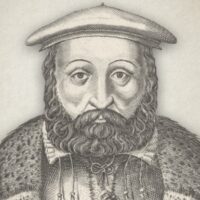
Chapter 31: It Should Be Openly Preached – Part 5
To what these great men have so nervously advanced permit me to add, that the doctrine of predestination is not only useful, but absolutely necessary to be taught and known.
(1) For without it we cannot form just and becoming ideas of God. Thus, unless He certainly foreknows and foreknew from everlasting all things that should come to pass, His understanding would not be infinite, and a Deity of limited understanding is no Deity at all. Again, we cannot suppose Him to have foreknown anything which He had not previously decreed, without setting up a series of causes, extra Deum, and making the Deity dependent for a great part of the knowledge He has upon the will and works of His creatures, and upon a combination of circumstances exterior to Himself. Therefore, His determinate plan, counsel and purpose (i.e., His own predestination of causes and effects) is the only basis of His foreknowledge, which foreknowledge could neither be certain nor independent but as founded on His own antecedent decree.
(2) He alone is entitled to the name of true God who governs all things, and without whose will (either efficient or permissive) nothing is or can be done. And such is the God of the Scriptures, against whose will not a sparrow can die nor an hair fall from our heads (Matt. 10). Now what is predestination but the determining will of God? I defy the subtlest semi-pelagian in the world to form or convey a just and worthy notion of the Supreme Being without admitting Him to be the great cause of all causes else, Himself dependent on none, who willed from eternity how He would act in time, and settled a regular, determinate scheme of what He would do and permit to be done from the beginning to the consummation of the world. A contrary view of the Deity is as inconsistent with reason itself, and with the very religion of nature, as it is with the decisions of revelation.
(3) Nor can we rationally conceive of an independent, all-perfect first cause without allowing Him to be unchangeable in His purposes. His decrees and His essence coincide, consequently a change in those would infer an alteration in this. Nor can that being be the true God whose will is variable, fluctuating and indeterminate, for His will is Himself willing. A Deity without decrees and decrees without immutability are, of all inventions that ever entered the heart of man, the most absurd.
(4) Without predestination to plan, and without providence to put that plan in execution, what becomes of God’s omnipotence? It vanishes into air. It becomes a mere nonentity. For what sort of omnipotence is that which may be baffled and defeated by the very creatures it has made? Very different is the idea of this attribute suggested by the Psalmist, “Whatsoever the Lord willed, that did He, in heaven and in earth, in the sea and in all deep places” (Psalm 113), i.e., He not only made them when He would, but orders them when made.
(5) He alone is the true God, according to Scripture representation, who saves by His mere mercy and voluntary grace those whom He hath chosen, and righteously condemns (for their sins) those whom He thought fit to pass by. But without predestination there could be no such thing either as sovereign mercy or voluntary grace. For, after all, what is predestination but His decree to save some of His mere goodness, and to condemn others in His just judgment? Now it is most evident that the Scripture doctrine of pre-determination is the clearest mirror wherein to see and contemplate these essential attributes of God. Here they all shine forth in their fulness of harmony and lustre. Deny predestination and you deny (though, perhaps, not intentionally, yet by necessary consequence) the adorable perfections of the Godhead: in concealing that, you throw a veil over these; and in preaching that, you hold up these to the comfort, the establishment and the admiration of the believing world.
Jerome Zanchius (1516-1590) was an Italian pastor, theologian, writer and reformer during the Protestant Reformation. After the death of Calvin, Zanchius’ influence filled the void, which was copiously met by a large written ministry. Among his most popular works are, “Confession Of The Christian Religion”, “Observation On The Divine Attributes” and “The Doctrine Of Absolute Predestination”.
Jerome Zanchius on Absolute Predestination (Complete)




